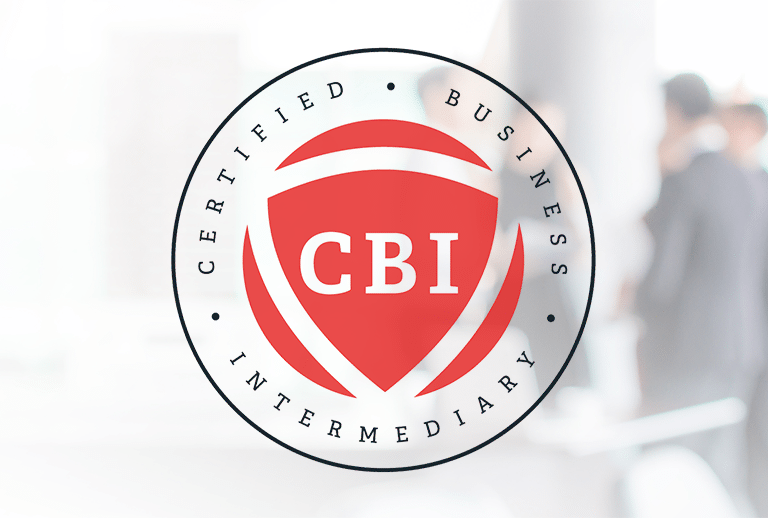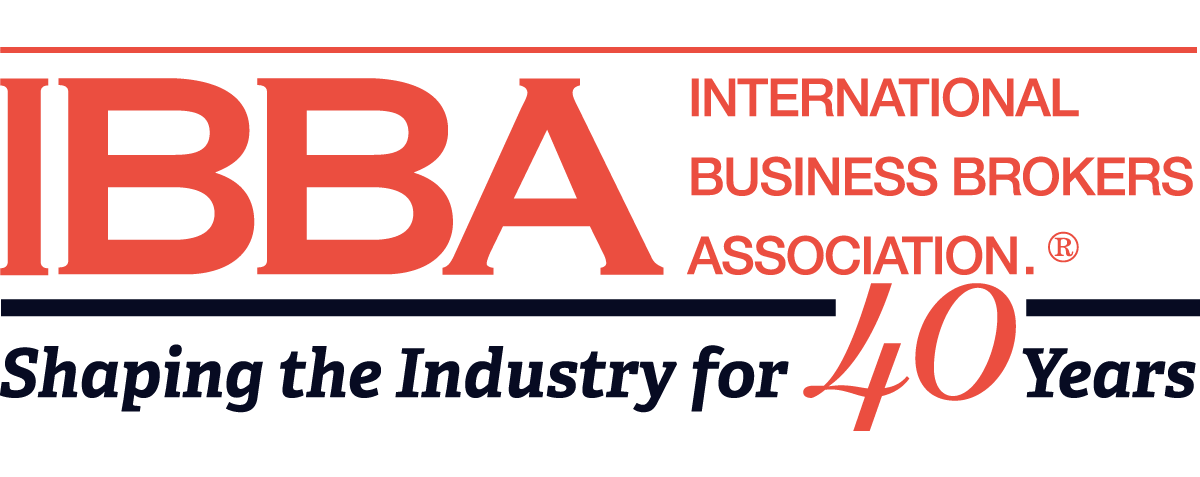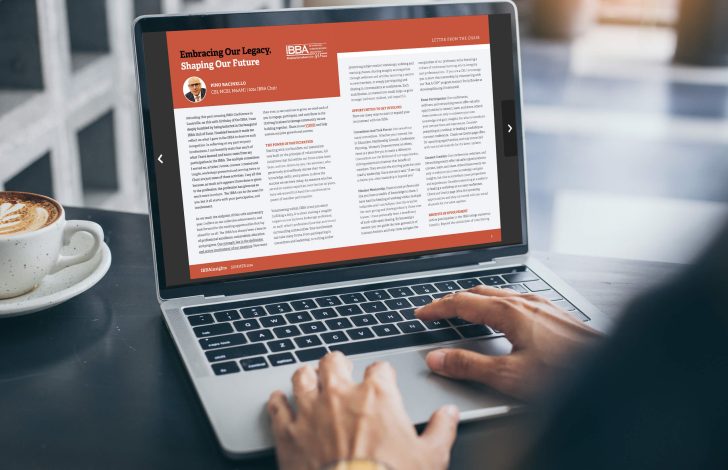IBBAinsights: Summer 2024
IN THIS ISSUE: “Embracing Our Legacy, Shaping Our Future” Letter from the 2024 IBBA Chair. Plus, Insights on Finding Success, Overcoming Blindspots, the Latest Legislative Update, and more!
Jeffrey Snell, IBBA CHAIR

I hope your 2019 is off to a great start. The economy remains strong and transaction volume is on pace to meet or beat 2018. It should be a BIG year for our industry!
Many BIG things are underway here at IBBA as well:
And you may have heard there is a BIG event happening soon…
If you haven’t yet registered for the IBBA “Big Ideas Event” Conference…what are you waiting for? This is the single largest convergence of Business Brokers in the world and it only happens once a year. I know you might have reasons in your mind why you can’t attend….time away from the office, travel expense, uncertainty about what it’s like. I can tell you from my own experiences that the IBBA Conferences are among the best investments I’ve ever made in myself and my practice. If you want to make more time and more money for yourself, then make it happen – REGISTER NOW.
Really BIG things can also happen when we all pull together. As your Chairman I can speak personally to the joy that comes with serving and reaching a hand out to help others along. Many of us wouldn’t be where we are if somebody ahead of us didn’t take the effort to guide us or improve our profession.
My plea to you is BE THAT PERSON. We have so many great programs running or launching that need volunteers to thrive. Consider joining a Committee, serving as an Ambassador, signing up for the ‘Ask A CBI’ program, or supporting Campaign for Clarity. If you want to contribute but aren’t sure where your time and talents would best apply then just contact me or IBBA staff.
I will close with a final BIG idea. Use your IBBA member benefits. The association has secured free access to top tools and resources you need: Business Reference Guide Online, BizMiner Financial Reports and Lists, and ValuSource Comps data. These three alone pay for your IBBA annual membership three times over. Now that’s BIG!
See you in Orlando,
Jeffrey Snell, CBI, M&AMI, IBBA Board of Governors
J. ROBERT BROOKS, CBI

Got an Itch for a Niche?
One of the bright new opportunities in business brokerage is healthcare practice brokerage. I don’t want to let the cat out of the bag too soon, but IBBA is now embarking on niche credentialing in dental practice brokerage. Dental credentialing is the first ever niche credentialing for the IBBA. It will be an add-on to those members who have Certified Business Intermediary credentialing already. The finishing touches are being put on the training modules at the time of this writing.
Top dental practice brokers from around the country have been recruited as subject matter experts for this project. Brokering healthcare practices is in some ways similar to general business brokerage but in other ways, quite unlike general business brokerage.
Determination of Most Probable Selling Price (MPSP) with dental practices would differ from general business brokerage in these ways and many more:
If you’ve ever brokered dental practices before but it’s a small part of your business, you probably felt like a fish out of water. There is a significant amount of specific knowledge that’s needed to do a good job representing sellers, assisting customer/buyers and keeping yourself out of trouble. Like any business, there’s competition. But if you can set yourself apart with IBBA’s dental credentialing, then you will have an impressive advantage over your competitors which should help you land more deals.
If you check the record of the highest paid individuals in the U.S. each year, you will see that dentists rank at or near the top of the list every year. It’s good to work with people who have money! Fortunately for dentists, dentistry is so profitable that many who are bad business managers still make a good living. For the dentists who are good business managers, they can be extremely profitable.
How big is the opportunity for you? The average general dentistry practice in the United States collects about $700,000 annually, but it is not uncommon for individual practice owners to collect $1.2- 1.6M. IBBA’s dental credentialing program will introduce a dental specific capitalization of excess earnings method to establish MPSP of practices. After using such a method, general dentistry practices usually sell in a range of 60 to 90% of collections and 1.50 to 2.0 times SDE. There are thousands of baby boomer dental practice owners who need help in selling their practices each year. But you would only need to serve a handful of those dentists to add hundreds of thousands to your bottom line.
Find out more about IBBA’s new dental credentialing by registering for this year’s IBBA Conference and attending “The Riches are in the Niches: Drilling for Gold in the Dental Practice Segment” workshop, on Saturday, May 11, 2019 at 10:45 a.m.
J. Robert Brooks, CBI specializes in healthcare practice brokerage in Ohio. In addition to Bob’s being a CBI, he is also a licensed real estate broker. Nearly all his clients are dentists. He is nationally published in “Dental Economics” and program chair for Practice Valuation Study Group, a national gathering of dental practice brokers. Bob also serves on the IBBA Education Committee.
The Finder, Minder, Binder Model in Business Brokerage
Wednesday, March 13, 2019
12 pm ET
Large M&A advisory firms have used the Finder, Binder, Minder practice management model for years with great success, but it has not been adapted in business brokerage. This webinar will discuss how the model works, the pro’s and con’s, and how it can be adapted to work in a business brokerage office. Hosted by industry veteran and CBI, Lou Vescio, this is a webinar you won’t want to miss!
 Why Every Business Should Consider an SBA LoanAccess to affordable financing is a challenge for many businesses including both startups and established organizations. SBA loans, or loans backed by the Small Business Administration, are often the ideal solution for companies looking for funding.
Why Every Business Should Consider an SBA LoanAccess to affordable financing is a challenge for many businesses including both startups and established organizations. SBA loans, or loans backed by the Small Business Administration, are often the ideal solution for companies looking for funding.
Despite their name, SBA loans aren’t administered by the Small Business Administration; these loans are funded by partner lenders able to offer loans at favorable terms thanks to the SBA’s loan guarantee program.
There are actually three types of SBA loans, each of which cater to a specific type of buyer or purchase. Because each type of SBA loan presents significant advantages over competing funding sources, any company looking to borrow should consider an SBA loan. In fact, there are four primary advantages to choosing an SBA loan that benefit organizations and entrepreneurs looking to borrow.
Because the SBA administers three loan programs, there’s great flexibility in what SBA loans can be used for and who is eligible to borrow. There are three SBA loan programs, which include:
The SBA guarantees up to 75% of funds for SBA 7(A) loans and up to 90% of funds for international export loans made by partner banks. This government guarantee reduces risk to partner lenders who are, in turn, more willing to make loans to businesses. Easier access to capital allows companies to grow and expand in situations where securing a loan would otherwise be an impossibility.
The SBA does establish certain minimum qualifying requirements, including proof of ability to repay. However, the qualifying requirements for SBA loans are almost always less stringent than the requirements to obtain loans without an SBA guarantee. In fact, the SBA specifically aims to make loans available to companies that could not otherwise secure traditional sources of funding.
Working capital, debt refinance and inventory purchase SBA 7(a) loans do not require down payments. SBA 7(a) and 504 loans utilized for business acquisitions or commercial real estate purchases can require down payments, but the down payment requirements are typically lower than non-SBA loans. SBA microloans do not always require down payments.
Not having to put down a substantial amount of money to secure funding makes it easier for cash-strapped businesses and startups to obtain the money they need for continued operation or expansion and growth. Low down payment requirements also mean companies can secure loans without tying up large amounts of working capital.
Repayment terms are often longer on SBA loans than on similar loan products not backed by the Small Business Administration. A longer repayment timeline means lower monthly payments, which provides greater flexibility for borrowing businesses. The loan repayment term is also determined based on the use of the funds and not dependent upon the collateral pledged to guarantee the loan.
SBA loan repayment terms vary by loan type and loan program. Most SBA loan request can be repaid over a 10-year period. This includes working capital loans and other loans. SBA loans used to purchase commercial real estate have extended repayment terms of 25 years. Loans with terms up to 15 years have no prepayment penalty and can be repaid on a schedule that fits your company’s budget.
SBA Loans are Always Worth Considering
When securing capital to fund operations, acquisition, or growth, businesses should consider easy qualifying requirements, minimal down payments, and flexibility in repayment options. SBA loans have all of these characteristics. Borrowers who obtain SBA loans will also gain access to a wealth of resources, including access to SBA-affiliated enterprises that offer training and educational opportunities.
Companies that need to secure funding should turn first to an SBA partner to see firsthand the benefits that SBA loans can provide. First Home Bank is a Top 10 Preferred Lender with SBA with an experienced team to assist with questions regarding SBA financing. They take pride in helping find the best solution for your business.
First Home Bank is a Top 10 Nationwide Preferred SBA Lender specializing in small business loans across a wide array of industries for business acquisitions, commercial real estate and equipment financing and working capital.

Sales of businesses are reaching record numbers, and today’s political world is having a greater impact than ever on Business Brokers – the professionals who aid in the buying and selling of businesses. To stay ahead of the rapid change and identify future trends in their industry, Business Brokers worldwide will gather at Rosen Shingle Creek golf and spa resort in Orlando, Florida on May 10-11 for the International Business Brokers Association (IBBA) Annual Conference.

Geared to business brokers and business buyers and sellers, “The Real Deal” podcast offers fascinating stories, helpful tips and insightful tales from experts in the business buying and selling industry. Listeners in other industries, such as sales, marketing, finance or legal, will also find this podcast entertaining and insightful.
Experienced business broker and past chairman of the IBBA, Cress Diglio, will host passionate conversations between some of the best business brokers in the world and other distinguished guests. Season 2 is set to launch March 2019.

BARRY J. BERKOWITZ, PhD, CBI, M&AMI, Fellow of the IBBA and Tom West Award, IBBA Board of Governors – Chair of Education, 2020 Chair Elect

Broker Due Diligence is the Key to Closing More Deals
Is your goal to sign a listing agreement at your first meeting with a potential seller? Do you believe that the more signed listing agreements you have the greater your success will be, even though you may not know a lot about the companies that you sign with? Maybe you say, “I’ll sign up the seller at the price he/she wants. Once I learn the facts, I will then convince the Seller to adjust the price.” If this sounds familiar, you may want to reconsider your strategy. I will argue that the quality of your listings, not the quantity, will be the key to your success.
Statistics clearly show that more than 80% of businesses that are under a listing agreement with a business broker don’t sell. Why is that? And what can you do to improve your percentage? How much time do you waste on deals that do not have a chance for a pay day?
Before you enter into a listing agreement make sure you perform your pre-due diligence. As every business broker knows, due diligence is the process that a buyer and the buyer’s advisors go through to ensure that all stated claims by the seller are true and accurate. To the extent that the due diligence process discovers new facts or misinformation, a deal can die or, at best, be renegotiated at an unnecessarily discounted price.
Broker pre-due diligence is the research that every business broker should do for every potential listing. The buyer’s due diligence team will eventually find out everything. It is best for you to uncover all the skeletons before signing a listing agreement and committing yourself to an assignment you will regret. Below are some of the pre-due diligence activities that every business broker should perform.
Check out State and Local records.
Before you even visit the business of interest, check the Secretary of State records to find out who owns the business and the kind of entity (e.g. S Corp., LLC, not-for-profit). Early in my career I didn’t check this and found the owner trying to “sell” his Board position on not-for-profit business. Obviously, that would be an illegal action and you would certainly not want to be at all involved, even in any discussions of such.
By looking at the company’s public records you may learn that there are additional owners and/or officers. It is important to learn who will be making the selling decision and whether that person has the legal authority to independently act on behalf of the company. Otherwise, you may be wasting your time
Ask for financial statements and tax returns.
Prior to committing to a listing agreement, be sure to review the financial statements or tax returns. Don’t be surprised if a small, main street business owner tells you that they don’t use QuickBooks or even a spreadsheet to keep track of their financial performance. Some will say they send their bank statements and check register to their accountant who tells them at the end of the year how they’re doing. Yikes! That should be your first warning that this business may not be worth your time. On the other hand, many small business owners operate this way without any nefarious intent. However, the owner should certainly be able to provide you with three prior years of tax returns. If the owner resists, even after you agree to sign a confidentiality agreement, say “goodbye.”
When you do receive prior year tax returns, spend some time analyzing them and establish a set of questions for the owner. When you meet with the owner, show him/her your summary of the income statement in an easy form for the owner to understand. Ask whether the line items appear to be accurate. Don’t be surprised to hear that the sales are understated and that many of the expenses were for personal benefit. Some or all of that may be true, but you need to drill down with the owner to make sure he/she is able to prove the claims. Otherwise, a buyer’s due diligence will certainly discover the unproven irregularities, causing a dead deal or a significantly renegotiated deal, usually much worse than if the provable facts were disclosed at the onset. The result could also be a lower commission for you, or even none should the deal die.
Be aware of claims that sound too good to be true.
Be aware if the owner tells you that he/she takes in cash and that is not shown on the tax return. However, of course, the seller wants a buyer to pay for that. Well that may be possible, but now is the time for you to force the owner to prove the claim; not during buyer due diligence. You as the broker can do some detective work to see whether your buyer is being truthful. For many businesses, it is sometimes easy to estimate sales reasonably well. A good example would be coin laundromats. By reviewing the specifications of the washers and dryers, you can use the electrical bills and water bills to calculate sales. As you show the owner your evidence, you will enjoy this sheepish grin on your seller’s face when you show sales to be about $300,000 rather than the claimed $500,000.
Do a “back-of-the-envelope” valuation.
Most importantly, once you’ve received copies of the tax returns, you can do a back-of-the-envelope valuation to get a pretty good idea of the most probable selling price for this business. If the seller is expecting to receive $400,000 and you believe the business will sell for about $200,000, that is a very wide gap. Rather than signing a listing agreement with $400,000 as the asking price, your job is to educate the seller to understand that pricing the business correctly is the best way to get a fair deal done quickly. Don’t take on the listing at an unreasonable price with the expectation that the seller will come to his/her senses and eventually agree to lower the price. You will be wasting everybody’s time, including the time you should be spending to prepare for and to market the business properly. You will likely not have the time to do what is necessary, both professionally and ethically, to sell a business, if you take on every listing that comes your way. There is a lot of work that should be done to get a listing ready for the market and then deal with the potential buyers. If it is unlikely that a buyer will come to terms with the seller, then why take on that listing?
Conclusion: Know all the Facts before you sign on the dotted line.
So, the strong message that I can give is before you sign any listing agreement, make sure you know all of the facts as best as you can by doing your pre-due diligence. Do it carefully and have those important discussions with your potential seller. Make sure you agree on the likely price that the business will sell for. Try to find and understand all the skeletons in the closet. Convince the seller that it is much easier to explain the skeletons rather than try to hide them. Potential buyers will always find them.
If you cannot satisfy yourself that you understand enough about the business and that a qualified buyer will be interested in making an offer at the price you feel it is worth, then you should not be taking on that listing. I would rather have a few terrific listings that I know are going to sell then to have 30 listings of which only three will sell. The latter causes a tremendous amount of work with little to show for your efforts other than a potentially damaged reputation.
Denver, Colorado | April 3-5, 2019
The International Business Brokers Association and M&A Source, in partnership with Pepperdine Private Capital Markets Project, have set a goal to provide quality information on a quarterly basis in order to become the go-to source for Main Street and Lower Middle Market transactions.
H. Winston Hines, CBI

Business Brokerage and Opportunity Zones
First off, I AM NOT A CPA. After you read this article, copy it, cut it out, or send the article to your CPA to look over. I am, though, a licensed commercial real estate broker-and CCIM Candidate- and member of IBBA with CBI, and what I’m going to summarize below could, I repeat, could, have a major impact on a possible Seller Client of yours if that business happens to be situated in an Opportunity Zone, may influence the negotiation dynamics for how and where a Buyer looks for an investment, and could have a significant impact of how projections for future earnings look. I want to assume a number of you reading this are already aware, but I was surprised to discovered how much this program has energized the commercial real estate profession and that they were caught off guard a bit by the implications of this program.
As we know Trump’s tax cut bill really did help small to medium businesses across the country…and guess what, a lot of what we deal in, though of course, not directly advising on tax consequences, has to do with those tax cuts. We have courses encompassing post-closing expectations, for example.
But, buried within the Tax Cuts and Jobs Act of 2017, is a section dealing with what are described as Opportunity Zones and Funds. It’s a section and program that did not get a great deal of attention when voted on, because it was a relatively brand-new idea, the IRS had to have about a year to put together rules on OZs, and that brought it right up to about now as you’re reading this. The shutdown fell right when the rules were supposed to be codified and locked in, so some of this that I write on February 18 may be outdated by the time you read this, but the basics are locked in place:
In short, Opportunity Zones, are bona-fide, on-shore, tax shelters for ANY kind of capital gains, and they are step beyond a 1031 Exchange:
Experienced or knowledgeable Business Brokers are probably familiar with 1031 or Starker or sometimes called “Tax Free” Exchanges of what are called “like-kind” real estate. The essence of a 1031 Exchange is to take the capital gains value of just about any kind of commercial or investment real estate sale-except a home-and plunk it down within an up to 90-day period in another piece of qualifying real estate-again nothing home-like. You can swap raw land or any kind of building for another any kind of building or another piece of raw land anywhere, doesn’t matter whether it is income producing or not-just that it is “investment” oriented. There are a bunch of steps you have to go through, there are documents that have to be chronologically arranged, you will have to engage a trustee called a Qualified Intermediary, blah, blah, blah…but your Client does get to NOT pay Uncle Sam 100% of his capital gains on that real estate, if it’s done right, timed correctly. Just about any time you have over as little as $10-15 thousand in potential capital gains on real estate, you at least want to run it by the Client’s accountant. Most important caveat/takeaway: Do Not EVER let the Client Sign any buy-sell agreement on his or her commercial/investment real estate until the CPA has had time to look over the deal to see if the Client could benefit from a 1031 exchange.
Commercial real estate brokers get drilled in 1031 Exchanges, we do them for our clients on a case by case basis, they’re not for everyone, but when used properly they do work well. (Just FYI: A lot of the stepped-up value of Trump holdings has been through 1031’s)
Now comes along Opportunity Zones (and Funds) sponsored by my U.S.Senator Tim Scott (R-SC) in 2017.
Several key items to keep in mind:
ANY kind of Capital Gains can be rolled into or for an Opportunity Zone Fund. This means that whereas a 1031 Exchange IS LIMITED to REAL ESTATE on both sides, this is not the case with OZs. The capital gains that go into an Opportunity Fund can come from the sale of a business, or any stock, or artwork, or ANYTHING of value that is going to incur capital gains liability-and that could include the capital gains on the Sale of the Business.
“Qualified opportunity zone property includes qualified opportunity zone stock, qualified opportunity zone partnership interests, or qualified opportunity zone business property.” (This means either businesses or building)
Opportunity Zones were identified in EVERY State, by governors’ offices last year and the year before. They are specific to lower income or economically depressed areas, or areas that have been identified by each state as deserving of more focus of investment money into that area.
Opportunity Funds are self-established Funds that are set up that can be set up easily by an attorney and/or CPA. The Fund does have to be certified and monitored. 90% of the Funds must go to investment of either businesses, equipment for businesses, or buildings within up to 180 days. This is the essence of where the Capital Gains (CG) goes from the sale of whatever-Again: talk to your CPA and/or attorney. There of course is a lot of small print to this.
So What? What are the Benefits? 1. Once a Client self-declares that he or she intends to invest in a QF, that CG liability is deferred up to 10 years into the future. Right there, that offers a lot of flexibility for a Client. If the Client holds that capital gains in this Opportunity Fund for a minimum of 5 years, Client get to shelter 10% of CG from taxation. 2. If Client go for 7 years, Client gets to hold onto a total of 15% of his capital gains. That is fine and dandy. 3. And if Client goes for a period of 10 years in the OF, then 100% of any capital gains on the sale of the holdings in the OF are sheltered. To summarize, the up to 15% shelter of the CG for holding for that 7-year period, and even more the long-term benefit on holding at the 10-year time period.
Not acceptable or prohibited properties or businesses: (I kid you not!)
As of this writing this is the most up to date list of no-go’s. Do I really need to fill in the blanks for you on this? Smiley Face goes here.
To summarize: Talk to your CPA and/or your attorney! For investors with CGs leaning forward looking for that next acquisition or anything else that will qualify geographically, this is a seriously effective tool for you and the Client’s CPA to consider.
If you regularly touch base with a knowledgeable commercial real estate broker, ask him or her about this. A residential broker is just not going to be professionally focused/conversant on this stuff. If you’re friends with a tax attorney, or in the case of 1031s, an experienced 1031 attorney, I’d suggest you research this topic then touch base with some of the people in our industry knowledgeable on this program.
Nota Bene: There already is 2-day Conference on Opportunity Zones and Funding planned and set up in Vegas at the Mandalay, May 9-10.
This program honestly in my humble opinion is a sleeper that offers so much real opportunity, on both the Investment side and the Capital Gains side, that this program may have more real long- term impact and benefits than just the tax cuts in the Tax Cuts and Jobs Act of 2017.
Again, this is JUST an OVERVIEW. What I’ve put to you is merely a framework, merely a guidepost on where this might benefit our industry or you personally. If you want to contact me on some of the links, websites, articles I used to research this article, see below.
H. Winston Hines has been a commercial real estate broker since 1992, and is a CCIM Candidate. He is also a member of IBBA, with CBI certification since 2008. He has been an expert contributor to Business Reference Online, and has written articles and appeared on panels dealing with the sales and purchases of businesses in his niche market.
[ezcol_1half]

[/ezcol_1half][ezcol_1half_end]
Learn more about the CBI HERE!
When you want to work with the best intermediary to buy or sell a business, look for the CBI designation.
[/ezcol_1half_end]
We invite all IBBA Members to join the IBBA Facebook and IBBA LinkedIn Member Groups! Use these as a tool to communicate with your peers to get conversations started to get engaged!
1. LIKE the IBBA Facebook page.
2. REQUEST to join the IBBA Private Group.
3. Once approved, START a conversation!
Welcome to 110+ New Members that joined the IBBA since December 1, 2018!
[/ezcol_1half][ezcol_1half_end]
To get started with your FREE access, login to your IBBA Member Account to get access from each benefit partner:
Bizminer
Business Reference Guide Online
ValuSource
[/ezcol_1half_end]
The 2019 IBBA Annual Conference will be held in Orlando, FL on May 10-11! Registration is open, so register now to join us for The Main Street Marketplace, Workshops, Masterminds, Awards Program, Courses and more!
IN THIS ISSUE: “Embracing Our Legacy, Shaping Our Future” Letter from the 2024 IBBA Chair. Plus, Insights on Finding Success, Overcoming Blindspots, the Latest Legislative Update, and more!
Independence, OH May 21st, 2024 – IBBA, the world’s largest professional trade association for Business Brokers, today announced and recognized the recipients of its top performance awards at the 2024 Annual Conference in Louisville, Kentucky. “The cumulative transaction value of this year’s submitted deals was over $2 billion, which is an astounding number,” stated Kylene […]
Independence, OH – April 11, 2024 – The International Business Brokers Association® (IBBA) is pleased to announce the inaugural inductees to the IBBA Hall of Fame: Jim Afinowich | Lifetime Master CBI, M&AMI, Fellow of the IBBA Pino Bacinello | Lifetime Master CBI, M&AMI, CM&AP, Fellow of the IBBA Barry Berkowitz | Lifetime Master CBI, M&AMI, […]
Newsletter Sign UpGet the latest insights on buying and selling small businesses direct to your inbox.




